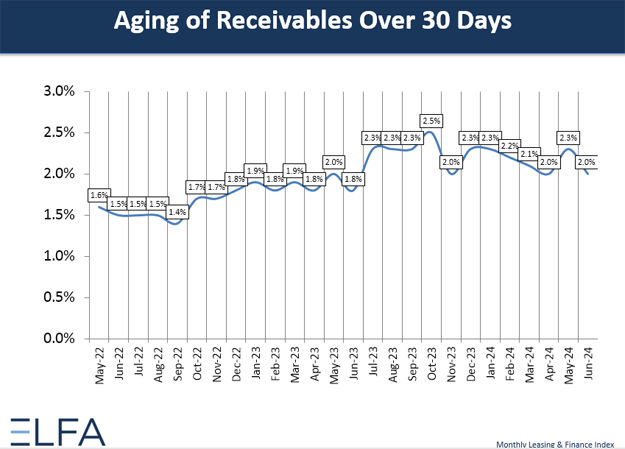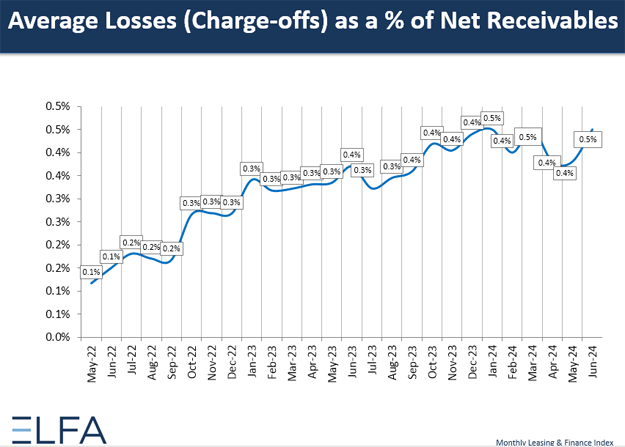
Our company has been buying commercial debt from equipment finance businesses nationwide since 1998. It’s our specialty. So, my insights on debt acquisition trends in equipment finance reflect experiences gained over 26 years of economic cycles.
This article will provide a brief overview of the types of commercial debt being bought and sold in the industry today, key motivations of sellers and general observations on changes we are seeing in the market, including trends in bid prices.
Debt Targets
Commercial debt acquisition in the equipment finance industry today is focused primarily on portfolios of non-performing loans and leases. Most accounts being sold have defaulted and reached charge-off, which is 180 days from the date of the last payment. To be viable on the commercial debt market, accounts are typically no more than a few years old from the date of last payment. They can be pre-agency, post-agency, pre-litigation and/or accounts that have been reduced to judgment.
For our company, credit quality is important as the type of paper we buy is more expensive than an out-of-statute or bankrupt portfolio. While we look for in-statute files, of large volume portfolios from $5 million to more than $100 million and individual accounts of under $100,000, other buyers will purchase one-offs, out-of-statute and bankruptcy portfolios.
Beyond equipment finance, there are buyers for all sorts of commercial debt, and there are all sorts of sellers including banks. Deals we learned about just this week include a line-of-credit portfolio secured by mortgages on commercial property for more than $200 million, and a commercial credit card portfolio for roughly $100 million.
Not all portfolios are attractive to all debt buyers. Recent examples include a $10 million deal offered by a captive leasing company that regularly sells portfolios of acceptable credit quality. In this case, however, credit quality was questionable because the portfolio primarily consisted of old files and judgments. The portfolio also lacked continuity, meaning the accounts represented were so different from one another in terms of quality, type and other characteristics that we could not get a feel for the portfolio as a whole. Other portfolio problems that can derail a sale include cases where the seller has repossessed and sold off equipment but failed to maintain the media (documentation) needed for the buyer to prove the disposition of the assets, if ever needed, in court.
Equipment finance companies routinely sell off all, or a portion, of their charge-offs. It’s an established industry practice. Businesses use different criteria to determine the pool of assets they want to sell, considering factors such as the vintage, geographic location, quality and/or balance of the accounts.
What motivates equipment finance companies to sell non-performing accounts? Mainly, the payoff. Some buyers pay immediate cash at closing. Sellers use the payments to improve cash flow and at times, invest money back into originations and other revenue-generating activities.
Two other reasons motivate equipment finance companies to sell their commercial debt: 1) collections staff can devote internal resources to accounts that are earlier in the past-due cycle and more likely to be recovered and 2) commercial debt selling is a future-proof strategy: equipment finance companies can depend on a definite return now rather than risk diminished returns later.
Industry Trends
One trend affecting debt buying and selling in equipment finance results from consumer debt buyers expanding into the commercial space when consumer debt levels were low. Now that consumer debt has picked up again, they are retreating from this space.
Before their retreat, some consumer debt buyers quoted inflated bids due to their inexperience with commercial debt or their desire to win initial business in unfamiliar territory. They did not understand valuations in our industry nor the other ways in which commercial debt acquisition differs from consumer debt buying. Their unrealistic bids raised the expectations of commercial debt sellers.
We have seen bid prices normalize in recent months as consumer debt buyers have left the commercial market.
This is actually a positive trend for sellers overall. They are less likely to encounter buyers who submit artificially high bids but don’t have the experience or funds to complete the initial transaction as agreed or finance subsequent ones. Also, these uneducated buyers aren’t forced to mitigate losses by using non-preferred recovery tactics.
I’ve been asked about the effect that inflation is having on the commercial debt market in equipment finance. It varies depending upon the kind of product a business provides and what it does to offset the increased cost of goods. Inflation can also affect the personal guarantor who secures the business obligation. If these parties are unable to successfully navigate the impacts of inflation, they will struggle and potentially default on their loans and leases. This can also increase the difficulty of collections and recoveries.
Overall, our company is seeing more commercial debt in the equipment finance marketplace as charge-offs increase and recoveries fall back to pre-pandemic levels.
The Monthly Leasing and Finance Index of the Equipment Leasing and Finance Association (ELFA) provides a view of trends on aging of receivables beyond 30 days. There we can see signs of upward creep in the past year. The ELFA has also previously reported that credit quality is mixed but within historical norms.

ELFA data show that charge-offs have been climbing since 2022. They are still within historical averages, however. This signals a return to normalcy for the industry after pandemic-era lows.

I’m also asked about how recoveries are going after debt sales. Our goal is to work with commercial debtors diplomatically, over an extended period, to reconcile their unpaid account and get them out of this debt. Generally, recovery rates today are good but not as high as we experienced during the pandemic, when businesses were buoyed by Covid relief funds. Recovery rates have normalized since then and mostly returned to pre-pandemic levels.
The Process
I can’t speak for all commercial debt buyers but when sellers are dealing with our company, the process is quick and easy. First, we provide sellers with a no cost, no obligation price estimate on the pools of assets they are considering selling. Pricing is based on our experience in the industry and historical recovery data.
If the seller agrees to the price, they sign a purchase agreement, and we wire the payment. Sellers often establish ongoing relationships with us, and the process is typically managed online and completed in hours.
What happens to accounts after they are sold? We work with commercial debtors using our own name, not the equipment finance company’s. We never resell accounts. That way, sellers can buy back an account if they feel they made a mistake in selling it.
Companies new to commercial debt selling typically have additional questions about the process. They are curious about how other companies in equipment finance and commercial finance are using debt-buying services. Our website answers many commercial debt acquisition questions, especially on the Get Started and Success Stories pages. We can also answer your questions directly.